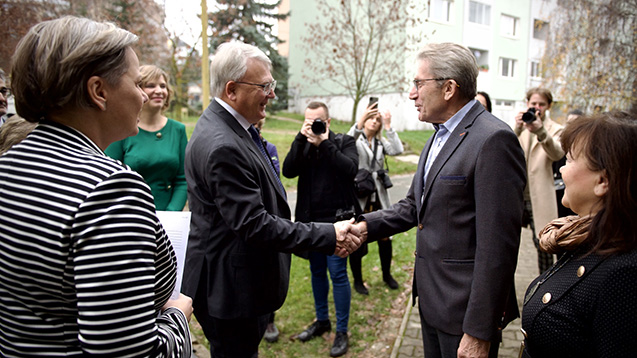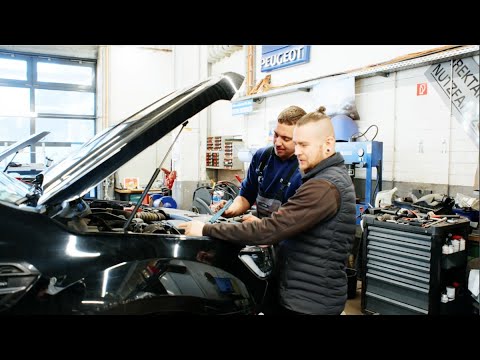
On 25 November, Commissioner Schmit visited a project in the city of Košice, Slovakia, that has an innovative way to combat family homelessness. Launched in 2020 by the DEDO foundation, the project works under the Housing First approach, ensuring human rights and social justice to help individuals and families find and maintain accommodation. This represents a complete paradigm shift, from simply managing the issue to ending and even preventing homelessness.
DEDO’s achievements have been instrumental in designing Slovakia’s national strategy for preventing and ending homelessness. The foundation has introduced numerous social innovations, focusing on the welfare of homeless families and young persons, which have since become part of national legislation – and are publicly funded. Slovakia’s newly-adopted Partnership Agreement for 2021-2027 and the Cohesion Policy Programme which will implement it will also bring additional ESF+ resources to reinforce the Housing First approach in Slovakia, building on the success of the Košice project. This includes further funding for the Foundation’s Integration Centre, which – in partnership with public authorities and non-governmental organisations – supports refugees fleeing from the ongoing conflict in Ukraine.
Housing First
Co-funded by the ESF, the Košice project currently provides affordable housing and a wide range of support measures to 23 families, with a plan to double this number – enabling 150 people, parents and children to live safer, more stable, and healthier lives, with no stigma of homelessness. Working under Housing First principles, the project aims to build local expertise and collect data on the impact of this approach on the quality of life of participating families. The project promoters also share the goal of ensuring resources in the area are being used as effectively as possible. Under Housing First, Foundation DEDO will build an integrated municipal system, effectively matching families and young persons with housing, social, and healthcare services as well as legal support.
Bespoke services for individuals and families
Established in 1997, Foundation DEDO has a mission to end family homelessness. It is dedicated to improving local government systems in order to prevent homelessness, as well as address the material, social and psychological needs of individuals and families experiencing homelessness. DEDO aims to provide tailored support, matching vulnerable individuals and families with the housing, social services, and healthcare they need to ensure they find and maintain a home, as well as helping the supported families to navigate through the employment and education opportunities.
Commissioner Schmit was enthusiastic about the project, stating, ‘The Foundation DEDO in Košice has made remarkable achievements in helping families to end the vicious cycle of homelessness and to re-integrate them into society. I very much welcome the ambitious plan to end homelessness of families in Košice by 2030. This push for inclusion is an investment also in the stability of our societies.’
Integration Centre for refugees from Ukraine
DEDO is also proactively responding to the influx of displaced people from Ukraine to Slovakia, initiating and co-ordinating, a consortium of civic organisations. In partnership with regional government, the consortium operates an Integration center of the Košice Region, which works as a ‘one-stop-shop’ to provide long-term support to people fleeing the war in Ukraine. Approximately 350 people have so far received vital aid with housing, jobs, healthcare, administration, psychological support and education.
Projects like this will benefit from the new FAST CARE opportunities to provide ESF funding to non-governmental organisations and local government active in supporting displaced people from Ukraine.



